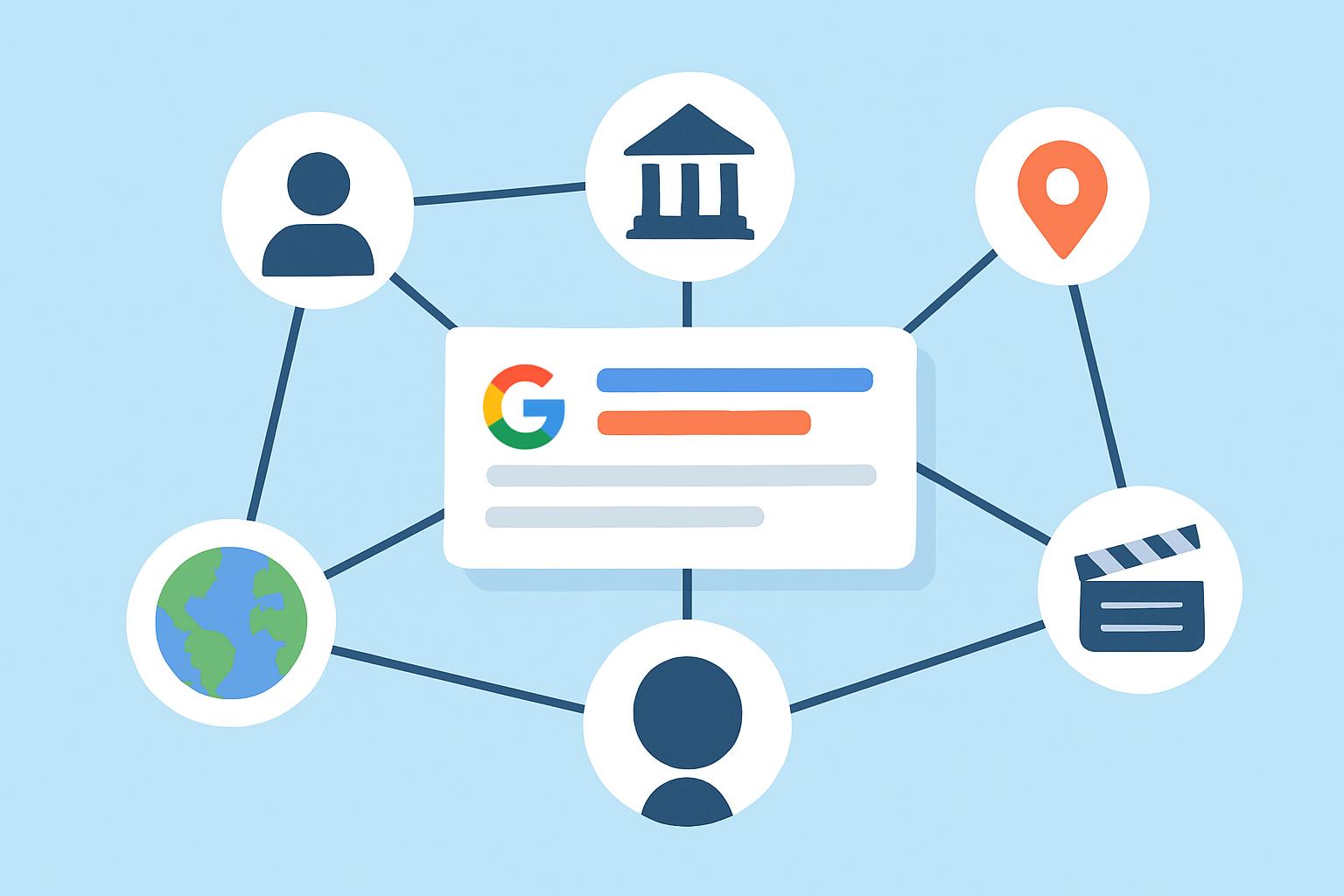
Top SEO Project Management Software for Streamlining Tasks
Streamline your SEO workflows with the top project management software reviewed here, designed to he...

The idea of "entities" in SEO plays a surprisingly important role in how search engines make sense of and rank the content on your site today. Put simply, entities are real-world people, places or things that search engines latch onto to better understand the meaning behind the words across your pages. Many beginners scratch their heads over what entities in SEO actually mean. This article clears up the fog and shows how entities differ from traditional keywords.
An entity is basically any distinct and recognizable thing or concept you can think of. It could be a person, a place, an organization, a product, an event or something more abstract. Search engines like Google lean heavily on these entities as vital clues to grasp what online content really means.
Instead of zeroing in on specific phrases or terms like traditional keywords do, entities point to real-world objects or concepts with their own unique identities. This move toward entities allows search engines to move past simple keyword matching and really tune into the meaning and context behind what people are searching for.
Keywords are basically the words or phrases people punch into a search engine when they’re hunting for something. They lean heavily on text and can sometimes seem a bit fuzzy or open to interpretation. Entities on the flip side are the actual specific concepts or things those keywords try to point us toward.
Search engines lean on entities to go beyond simple keyword matching and enable semantic search that captures the meanings, relationships and intent behind what users are asking for.
When search engines identify and connect entities they start to see the bigger picture of how different ideas tie together. This helps them get a good sense of how relevant and trustworthy the content is. Take a page that drops "Eiffel Tower" alongside "Paris" or "France." It’s like waving a flag saying, “Hey, I’m right on topic here!”
Entities are kind of like the internet's nouns — those distinct people, places, or things that quietly add a whole lot of flavor, meaning, and context to everything you stumble across online.
Google's Knowledge Graph stands out as a prime example of how entities can be neatly organized. It cleverly connects entities to their attributes and relationships, making it easier for users to snag quick detailed answers.
Understanding the Knowledge Graph can really give SEO professionals a leg up when crafting content that clicks with how search engines actually interpret and display info. When your content clearly shines a spotlight on relevant entities and their connections, it tends to have a better shot at popping up right in the search results.

Diagram illustrating how Google's Knowledge Graph links entities with rich search results and contextual relationships
Entities play a important role in how search engines understand your page content and judge its relevance. When your pages feature clear and spot-on entity references you often see a nice boost in topical authority and richer semantic context. This leads to a solid improvement in overall on-page SEO performance.
Improving semantic relevance helps your content hit the mark with the true intent behind search queries rather than chasing keywords like a headless chicken.
Linking your content to related entities is a solid way to build stronger topical authority and earn more user trust.
Clear signals from entities increase the chances of your site showing up in rich results, knowledge panels, or featured snippets.
Cutting down on fuzziness around search intent usually boosts how accurately your content ranks with no guesswork.
Entities also give your performance a boost in voice search and AI assistants by making context and meaning clear.
Including entity optimization in your content strategy really gives search engines a clearer handle on what your page is all about, which often translates into higher rankings.
Structured data markup such as the Schema.org vocabulary helps clarify exactly what the entities on your web pages actually are. This kind of markup gives search engines a leg up in recognizing and organizing these entities, which often leads to better indexing of your site and spruces up how your search results show up.
Adding structured data for entities like products, organizations, events and people can really give your content a leg up when it comes to snagging those coveted rich snippets. These little nuggets often help boost click-through rates and jazz up how your pages appear in search engine results pages (SERPs). Tools such as Semrush and Moz offer handy guidance on implementing structured data and can even audit your pages to make sure everything is spot on.
| Entity Type | Corresponding Schema Markup | Example | Benefits of Implementation |
|---|---|---|---|
| Person | Person | Elon Musk | Puts the spotlight on key individuals and gives author profiles a solid boost, helping to build trust along the way |
| Organization | Organization, LocalBusiness | Gives your brand a nicer glow and can seriously help ramp up local SEO results | |
| Place | Place, LandmarksOrHistoricalBuildings | Eiffel Tower | Tosses in valuable context for those local or travel-related searches, making them a bit richer |
| Product | Product | iPhone 14 | Lets you flaunt rich product details like reviews and special offers—little extras that catch the eye |
| Event | Event | CES 2024 | Highlights upcoming events right in search results, grabbing attention and raising the profile |
To really nail targeting entities in your SEO strategy it’s a smart move to lean on techniques that help search engines easily spot and link your content’s key ideas and topics.
Clearing up common misconceptions about entities can really help beginners get a grip on SEO strategies and steer clear of wasted effort or that frustrating confusion about how entities actually play into rankings and search results.
As artificial intelligence and machine learning continue to take leaps and bounds, search engines are leaning more heavily on entity recognition to really get the gist of user queries and the context behind the content.
SEO professionals and marketers who understand what are entities in SEO and master entity optimization usually find themselves in a much better spot to ride the waves of these changes, significantly boosting how their content gets noticed and ranks.

Streamline your SEO workflows with the top project management software reviewed here, designed to he...

Unlock your Weebly site's full SEO potential with expert tips and simple tweaks designed to improve...

Soft 404 errors can mislead search engines and harm your SEO. This guide explains soft 404s in simpl...

Discover comprehensive strategies for optimizing single page websites for SEO. Master keyword intent...